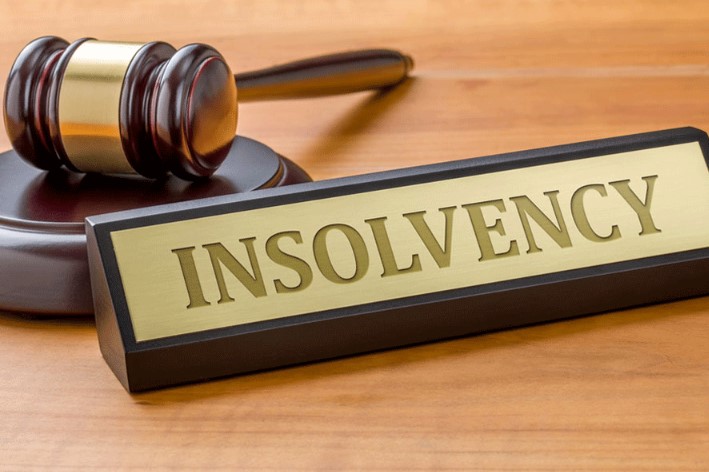What They Are And Why You Need To Know

Tax reimbursement clauses are a potent and critical tool in rely on setting up but come with … [+]
Introduction
Tax reimbursement clauses are a widespread clause in several trusts. Why are they utilized? Why are they significant for you to fully grasp?
What Is A Grantor Belief?
To recognize the use of a tax reimbursement clause you require to initially understand what a grantor belief is and how it works.
Advertisement
When a trust is characterised below the income tax legislation as a “grantor” rely on that suggests that the settlor, the individual creating the belief (also termed trustor or grantor), is accountable to pay out the cash flow tax on the earnings attained by the have confidence in. To recognize this odd consequence a little bit of historical context may well be helpful. When the marginal cash flow tax fees had been substantially bigger than they are now, taxpayers would consider to preserve profits taxes by engaging in scheduling to change earnings to a belief that would then spend income tax at a decreased price. Congress reacted to that form of setting up by enacted guidelines to induce the earnings of specific trusts to be taxed to the individual deemed the grantor of the trust. That restricted a lot of types of earnings tax arranging taxpayers experienced engaged in. But tax geeks are a artistic bunch. These constraints on revenue tax organizing which Congress enacted ended up reimagined as constructive tools to assist estate organizing.
Grantor Trusts Develop into the Estate Organizing Holy Grail
In 1986 when the tax legislation commenced taxing non-grantor trusts in a considerably harsher way, practitioners commenced using grantor trusts mainly for estate tax arranging functions. Tax people recognized that what appeared like a awful revenue tax end result could be a strong estate arranging resource. When you change property into a belief you want, from an estate tax and asset safety viewpoint, to have those assets improve as speedily as probable (and, if convenient in that protective trust envelope). An increase in benefit of property you have placed inside the trust means a lot more worth will be outdoors your estate and outside the house the access of your collectors. If you spend the revenue tax on the earnings gained by the belief that grows speedier. Why? Due to the fact with your shelling out the revenue tax on trust income the value of the trust is successfully escalating, truly compounding, on an money tax no cost foundation. Tax free compounding is probable the most strong drive in building prosperity. . And there is a double advantage, if you will, of generating gifts to grantor belief. As you fork out profits tax on belief money, not only does the rely on increase a lot quicker, but the assets in and benefit of your remaining estate also are reduced much more by that tax cost. That reduction in your estate, referred to as “tax burn up,” can be a positive reward as it minimizes the assets issue to estate tax or the achieve of lenders.
Additional, and vital to this advantage, is that the grantor’s payment of income taxes on trust revenue is not deemed to constitute an more present to the have confidence in mainly because the grantor was liable less than the tax guidelines to fork out that profits tax.
Advertisement
All that Glitters May well Not Normally Be Tax Gold
Grantor trusts hence foster much more expansion exterior of your estate and reduce what is left in your estate. So, if this is all so groovy why would any individual want to negate these positive aspects? Ah, that is a superior issue and actually really should be regarded as when you evaluate including a tax reimbursement clause in a have faith in, or if you have a single, irrespective of whether or not it should really be employed. The goal of a tax reimbursement clause is to offer money to the grantor to shell out the revenue tax on the earnings earned in the grantor believe in (due to the fact, of program, the earnings of a grantor have confidence in is attributed to the grantor who need to report that income and fork out the revenue tax on it.
Now you can realize the intent of a tax reimbursement clause. What if the grantor trust melt away turns into way too a lot of a good thing? What if you just don’t want to preserve paying the profits tax on a trust’s earnings? What if you do not have the dough to shell out the tax? Ouch!
If the belief can reimburse you for the cash flow tax you paid that may give a option to your funds circulation problems. If your have faith in consists of a tax reimbursement clause that could be possible.
Ought to You Include a Tax Reimbursement Clause in Your New Grantor Have confidence in?
Advertisement
Possibly.
If you are scheduling a new have confidence in, potentially you really should explore with your advisor group the pros and cons of together with a tax reimbursement clause in your have faith in.
Some tax advisers go so much as to insist that a tax reimbursement clause be provided in every single grantor trust. Period of time. Other tax advisers never use tax reimbursement clauses out of panic that they may well boost the threat of all rely on property staying involved in your estate as a consequence of the tax reimbursement clause staying considered as a retained suitable in the believe in or as you currently being a beneficiary of the belief which beneath some point out legislation will final result in estate inclusion.
Perhaps, as with a lot of tax troubles the reality may be somewhere in in between the two close point views. It is definitely does not seem to be that either extreme is essentially incorrect. Certainly, the inappropriate use of a tax reimbursement clause may well lead to estate inclusion so there really should be care in exercised it (see underneath). On the other hand, there have been so several scenarios of taxpayers misusing tax reimbursement clauses that not which include them, so extensive as it is a reasoned determination, might also make sense. The crucial, probably, is that whatever is accomplished really should be a considerate regarded determination.
Ad
Some folks could advise that if you have fiscal modeling carried out prior to your have faith in is made (usually a good transfer), you could be ready to forecast success and be confident that you should really not require to use a tax reimbursement clause. That is wonderful in idea, but the reality is almost never, if ever, does anyone’s financial foreseeable future enjoy out particularly as predicted in just one forecast. And if you are employing Monte Carlo simulation, you really don’t have “a prediction” but an array of predictions of which anybody of perhaps a thousand product results may possibly actually appear to go. No just one can predict inflation or investment returns above the lengthy expression, so maybe such as a tax reimbursement clause as a safety valve may possibly be a great evaluate (despite the fact that some pundits would say or else).
Probably, for a new believe in you involve a tax reimbursement clause but with the intent to prevent it being made use of for the factors expressed earlier mentioned.
What If Your Grantor Trust Does Not Have a Tax Reimbursement Clause?
If you have an irrevocable grantor believe in that does not have a tax reimbursement clause, and you have grown drained of shelling out money taxes on have faith in earnings, all may perhaps not be shed. It may be possible in accordance to some pundits to decant (merge) the trust into a new believe in and incorporate a tax reimbursement clause. No question several would say that is just not doable as it would be akin to incorporating a new beneficiary. But there might be a way. An additional choice could possibly be to have a powerholder (that is a person who retains a electric power – what a usually ineffective attorney definition! Just browse on) training a energy of appointment appointing the existing trust to a new believe in that does consist of a tax reimbursement provision. Say you designed an irrevocable grantor have confidence in without having a tax reimbursement clause and now want just one. Say in the believe in settlement you gave a person (the powerholder) the appropriate (electricity) to pour (appoint) the existing believe in into any new trust that added benefits anyone other than (for tax and creditor protection cause) her collectors, her estate or herself. She could be in a position to exercise the electricity of appointment and immediate that the latest trust be poured into a new rely on that is similar to the present-day belief but which also magically has a tax reimbursement clause. Bango presto, your challenge solved!
Ad
Another solution may well be to convert off grantor believe in standing. If the belief is no lengthier a grantor trust, then you no more time have to spend the earnings tax on have confidence in cash flow. Challenge solved. Perhaps. That is not usually a basic or cost-totally free step. If you flip off grantor rely on, depending on the qualities of the have confidence in balance sheet you could possibly locate you’ve just induced gain. Also, it is not this sort of a simple matter to make a grantor have faith in into a non-grantor have confidence in. If your husband or wife is a beneficiary that may possibly not be possible (unless of course of training course distributions to your partner have to be approved by an adverse social gathering). So that is not assuredly a slam dunk.
Ought to Your Tax Reimbursement Clause Be Made use of?
The base line will count on your recent and potential situations. Reimbursing you for profits taxes you will have to shell out on trust revenue may be a awful tax outcome as it defeats (nicely at minimum reduces) the stage of your getting developed the have faith in approach in the 1st position. So, potentially the standard rule is to stay away from making use of a tax reimbursement clause even if you have a person in your trust. But if you genuinely must use the tax reimbursement clause, really examine that initial and use it as occasionally and to the least diploma doable. (Additional on this later on).
How To Do Tax Reimbursement Right
There are a lot of requirements or suggestions on how to have tax reimbursement clauses utilised in a fashion that could possibly prevent causing the complete have faith in to be included back in your estate or enabling your lenders to access the believe in. See Revenue Ruling 2004-64, issued July 6, 2004 (2004-27 IRB 7). The pundits that recommend not working with tax reimbursement clauses may possibly be involved about the actuality that taxpayers frequently journey up above one particular or extra of these principles or suggestions. Most likely, these expressing that tax reimbursement clauses really should usually be included in trusts presume that people will cope with a tax reimbursement system properly.
Ad
It is critical (not just a recommendation) that if a tax reimbursement clause is involved in a trust arrangement that the trustee not be mandated by the believe in to reimburse the settlor for taxes compensated on have confidence in money. The motion of reimbursing ought to be discretionary in the trustee. Be sure that the have confidence in instrument claims that.
Condition law are not able to allow a creditor of the settlor to attain have confidence in assets as a outcome of the reimbursement. Although quite a few, maybe all, states have enacted legislation allowing reimbursement without subject believe in assets to the settlor’s creditor’s promises, you should really verify that just before location up these kinds of a believe in (or established up the belief in a point out that has favorable law on this level).
If a tax reimbursement clause is to be employed, the trustee and any person else associated should really consult with with the advisor team for the rely on. Talk to the legal professional who drafted the rely on (or whichever legal professional is then symbolizing the trustee) about the nuances of the provision in the document. Each individual believe in document might have its possess one of a kind drafting language and the training of any tax reimbursement clause need to comport with the conditions governing that belief. The accountant for the settlor should be involved and should really compute what tax the settlor has incurred on have faith in earnings and that should be documented. That documentation could be portion of the trustee’s data in identifying how a great deal the reimbursement will be. There could possibly also be documents of the trustee confirming that the trustee built an independent discretionary determination to reimburse the settlor for taxes (e.g., the conference minutes of trustee committee billed with this choice). Think about that any reimbursement of the settlor for cash flow taxes is harmful economically to the beneficiaries of the believe in to whom the trustee owes a fiduciary responsibility. That may well be an crucial for the trustee to take into consideration and even document the factors manufactured.
Ad
When deciding on the trustee of a believe in take into consideration who will be the trustee if a tax reimbursement is heading to be acted upon. If Uncle Joe is named as trustee, probably he should be changed by an unbiased particular person, and ideally a specialist trustee, prior to a tax reimbursement is made. Possibly working with a company trustee is even safer.
There should under no circumstances be a sample of a tax reimbursement being designed. If a tax reimbursement is created on a typical or periodic basis that may perhaps glimpse as if there was an implied settlement in between the settlor and the trustee to fund tax reimbursements. That could be problematic. (One particular assumed is to begin with A as trustee but have A resign and have B, who was not included with the setup of the trust, turn out to be the trustee in advance of any sizeable tax reimbursement payments are created.)
This recommendation is also regular with the recommendation previously that each individual exercising of a tax reimbursement mechanism cuts down the property taken out from the settlor’s estate which may possibly be contrary to the intent for the belief approach.
Ad
Summary
Tax reimbursement clauses can be a important and versatile device to take into account like in grantor trusts. That conclusion may possibly rely on how your tax adviser sights your prepare and the legislation. If you do include things like such a system, be very careful on how it is applied.







